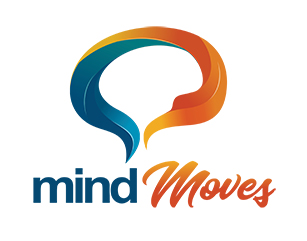When did you last get clunky?

When we step out of our comfort zone to learn new things, it can be confronting. Challenging. When we step into the unknown and learn we may be putting ourselves in a situation of uncertainty and not knowing. Our confidence can be unsteady as we slowly learn and practice our way back to confidence.
Once we’ve learned the new task or skill, practicing it so that it becomes a habit is the next challenge – it’s usually easier to continue doing what we’ve always done, or revert back to that when the going gets tough. Our established habits and routines are easy, take less energy and focus, and we can be more time efficient when we’re in our comfort zone. However, we can easily get stuck there, getting what we’ve always got.
In our communication skills training course we always refer to the learning stages diagram as it helps people understand their progress with the various tools that we explore.
There is always a stage where we have no idea of the things we don’t know about. We refer to that as unconsciously unskilled, or, that we don’t know what we don’t know. Often we will never know what we don’t know until it’s presented to us. I refer to a baby who doesn’t know that they can’t drive. They are unconsciously skilled at driving. For me, until I went to San Francisco in 2014 I never knew that I didn’t know how a cable car worked. The thought had simply never occurred!
One of my past employers used to say that the only difference between us is the people we meet and the books we read. I agree. People and new information present us with opportunities and ideas which we may choose to act upon. At that point we become consciously unskilled. That is, we now know that we don’t know about that thing.
Once we realise that we don’t know about that thing, driving, we realise that Mum and Dad drive the car and I can’t, or I’m not allowed to, yet. Some who were brought up on farms often learn to drive very young. Others may study and learn by googling, reading, getting training, asking advice and preparing for the day when we can start to learn. When we get in a vehicle for the first time, we start making the mistakes that provide us with our ‘experience’. Experience is wise, learned and informed and only comes if we are prepared to risk failing. As we become more adept at the task or process we become more aware of the skills we are developing, or consciously skilled. That is, we now know what we’re doing, however the task still requires thought, focus, concentration and practice to learn about all of the variations that may occur. Let’s go back to the skill of driving. Many of us drive every day, without thinking. Yet driving involves psychomotor or co-ordination skills, perception skills to interpret complex sensory data, vision, tracking to steer and keep the vehicle in its lane, information processing which helps with our reaction times and constant attention and co-ordination between all of the skills listed.
At the consciously skilled stage we are creating new neural pathways where neurons fire together to create neural pathways. An example is putting on a seat belt. For most of us it’s the first thing we do when we sit in the drivers’ seat and it’s automatic.
Once we’ve got a few miles driving experience including the bunny hops, trumpeting horns from behind when we forget to indicate and learning how quick the brakes work with the full force of your foot applied to the pedal, we start becoming unconsciously skilled. I refer to this as auto pilot. We’ve all had the experience of driving to or from work and not remembering driving past certain landmarks. That’s when we’re unconsciously skilled.
This learning process is relevant for all of us, whether we are learning to read and write, or learning to repair a jet engine in a plane. At each stage however, there are risks to be mindful of.
At the unconsciously unskilled stage we run the risk of remaining blissfully ignorant and continuing to get the same results time and time again, whether we want them or not. Until we are exposed to a new piece of information, we risk remaining where we are.
At the stage of being consciously unskilled we risk our ego. We may be tempted to give up because we realise that there are others more competent that we are. We can lose confidence or give up altogether because it’s too hard, or someone else can do it. At this stage keeping focused on our outcome and the benefits of why we’re doing it is a useful way to persevere.
When we become consciously skilled we know we’ve gained the skills and knowledge however we’re still at risk from making mistakes. This creates experience which is a valuable resource that we can share with others and that most employers seek. Without the mistakes, the learning may not be as rich and deep. As we get more practice and experience at this stage it starts to become automatic.
Using our new skills effortlessly and efficiently is when we are unconsciously skilled, or on auto pilot. And, there are risks here too. When you are really great at what you do, you run the risk of falling behind or missing out on new developments if you choose to stay in the groove of what’s comfortable.
Stepping out and risking, and learning new things can be challenging. When did you last get ‘clunky’ learning a new skillset, task or process?
